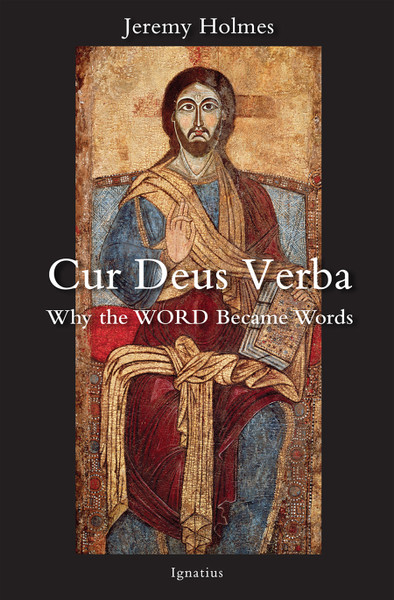Product Overview
Cur Deus Verba unfolds a systematic theology of Scripture from a single key question: What did God seek to accomplish by making the Bible? The answer requires seeing why the Holy Trinity made anything at all, why the Word became flesh, and finally why the Church needs an inspired text. As Christ is more fully "man" than any mere man, so his Church is more fully "society" than any merely human society. And as every society has its literary tradition, so the Church needed a canon of literature that would be more fully "book" than any merely human book.
But to grasp what God intended to accomplish, we have to see how he intended to do it. To the extent possible, God wanted human beings to cause not just the text but revelation itself, and paradoxically this exaltation of human agency gave rise to the need for Scripture’s spiritual sense. The spiritual sense of Scripture leads in turn to a meaning of the term "literal" that is unique to the realm of theology, and the connection between the two means that we cannot follow the literal sense without grasping the spiritual as well.
Once God has made what he intended in the way he intended, one question remains: How does this inspired text continue to exist? As with any text, the answer is that Scripture exists in physical books, but really and principally in the hearts of the readers. And Scripture's own place in the salvation history it records means that one human heart is preeminent: the text of Sacred Scripture exists exemplarily in the Heart of Jesus Christ.
Editorial Reviews
"Philosophically sophisticated, deceptively simple in the way it is written, Cur Deus Verba is a beautifully clear account of the place of Scripture in the totality of Christian doctrine and life.”
—Aidan Nichols, O.P., Author, Balthasar for Thomists and Rome and the Eastern Churches
“A synthesis of historical methodology and theological hermeneutics is necessary to overcome the aridity of the endless search for the ‘historical Jesus’ severed from the memory of the Church. This work is an attempt to make the implicit elements explicit in a manner faithful to the memoria ecclesiae and to do so under the guidance of the great Doctors of the Church.”
—Tracey Rowland, Saint John Paul II Chair of Theology, University of Notre Dame (Australia)
“How welcome to find a sound treatment of the spiritual senses of Scripture. I hope that this textbook finds a place on the bibliographies of Scripture courses everywhere.”
—Romanus Cessario, O.P., Adam Cardinal Maida Professor of Theology, Ave Maria University
“Holmes has crafted a masterful theological introduction to the purpose, nature, suitability, and historicity of Sacred Scripture. Step by step, he leads us to appreciate, celebrate, and finally rejoice that God has given us his Word in this particular scriptural form."
—Matthew Levering, James N. Jr. and Mary D. Perry Chair of Theology, Mundelein Seminary
“Only the wise teacher can write a book on a difficult subject that will be of real interest to both the novice and the expert. Jeremy Holmes has written such a book. His style is engaging, even conversational, with touches of gentle humor, but never at the expense of clarity or the reverence due the subject matter.”
—Gregory Vall, Notre Dame Seminary, New Orleans
“Dr. Holmes offers the Church a renewed approach to reading Scripture drawn from her own rich traditions and contemporary insights into community, tradition, psychology, history, and much more. His clarity of presentation, congenial style, apt examples, fruitful quotations, and attention to the needs of his readers make it a work that should be profitable for all the orders of the Church, from the learned layman to the Scripture scholar.”
—Andrew T. Seeley, Thomas Aquinas College, Santa Paula, California




